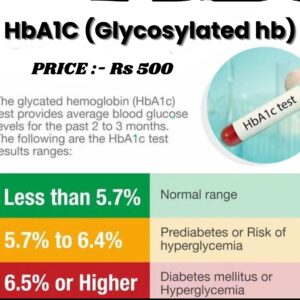Vitamin D is a fat-soluble vitamin that plays a key role in calcium absorption, bone health, and immune function. Vitamin D levels are measured through a blood test, typically checking for the concentration of 25-hydroxyvitamin D (25(OH)D), the main circulating form of vitamin D in the blood.
Vitamin D Levels Classification:
- Deficiency: Below 20 ng/mL (50 nmol/L)
- At this level, the body lacks sufficient vitamin D for optimal bone health and may experience increased risk for osteoporosis, rickets (in children), or osteomalacia (in adults).
- Insufficiency: 20-30 ng/mL (50-75 nmol/L)
- These levels are below the ideal, and although deficiency-related symptoms may not be present, it can lead to suboptimal bone and immune health.
- Sufficiency: 30-100 ng/mL (75-250 nmol/L)
- This is considered the optimal range for most individuals. It supports healthy bone density, normal calcium metabolism, and immune function.
- Potential Toxicity: Above 100 ng/mL (250 nmol/L)
- High vitamin D levels can lead to toxicity, causing hypercalcemia (high blood calcium), which may result in nausea, vomiting, kidney problems, and even cardiovascular complications.
Maintaining adequate vitamin D levels is essential, and supplementation or sun exposure is often recommended for those at risk of deficiency, such as people with limited sun exposure, darker skin, or certain health conditions.





Reviews
There are no reviews yet.